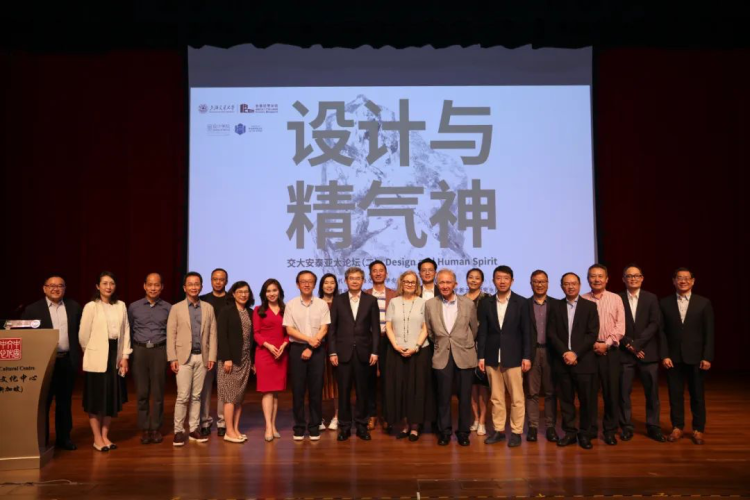
The 2nd ACEM Asia-Pacific Forum, with the theme of “Design and Human Spirit”, took place on December 16 at the China Cultural Center. The event was jointly organized by the Antai College of Economics & Management (ACEM), SJTU Asia-Pacific Graduate Institute, and the School of Design, Shanghai Jiao Tong University (SJTU). The forum brought together nearly 200 live audience members and touched on how individuals and groups can raise their spirits to embrace the new era in the face of geopolitical evolution, global pandemic, climate change, resource shortage, economic downturn and other crises. It was also simultaneously broadcasted live on multiple new media platforms.
The forum saw nearly 10 invited speakers from prominent enterprises and schools worldwide. Mr. Kang Kai, the counsellor for education at the Chinese embassy in Singapore, Prof. Ruan Xin, Dean of the School of Design, Shanghai Jiao Tong University, Dr. Liu Thai Ker, MORROW’s Founding Chairman who is widely recognized as the “Architect of Modern Singapore”, Mr. Tan Zhiyong, Chief Executive Officer at MCC Land (S) Pte Ltd, Mr. Wu Jiong (John Wu), SJTU 1985 graduate, Founding Chairman of F&H Fund Management made their speeches at the event, shedding light on the theme from academic, industrial and social perspectives.
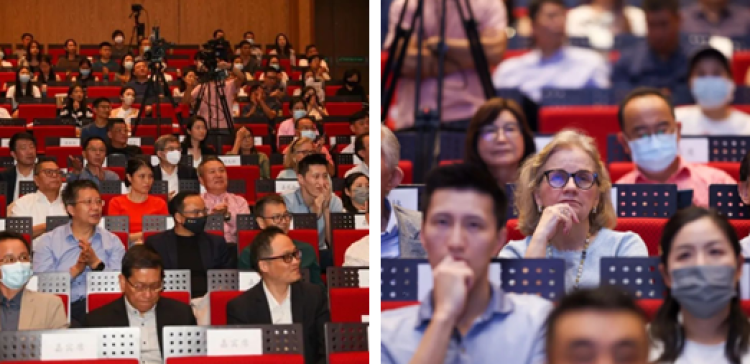
Prof. Xi Junfang, Asia-Pacific chief representative of ACEM, indicated that Antai Asia-Pacific Center will adhere to the college’s strategy of “Two types of scholarships, horizontal (academic) and vertical (industry), reinforcing each other and connecting theory with practice”, integrate the characteristics of science and engineering of SJTU into the development of business discipline, deepen the construction of ASEAN MBA program, and invite well-known experts from SJTU and its collaborative schools to share outstanding experience in the fields of economy, finance, science & innovation, and global governance, to bring the most valuable and cutting-edge information to students and alumni.
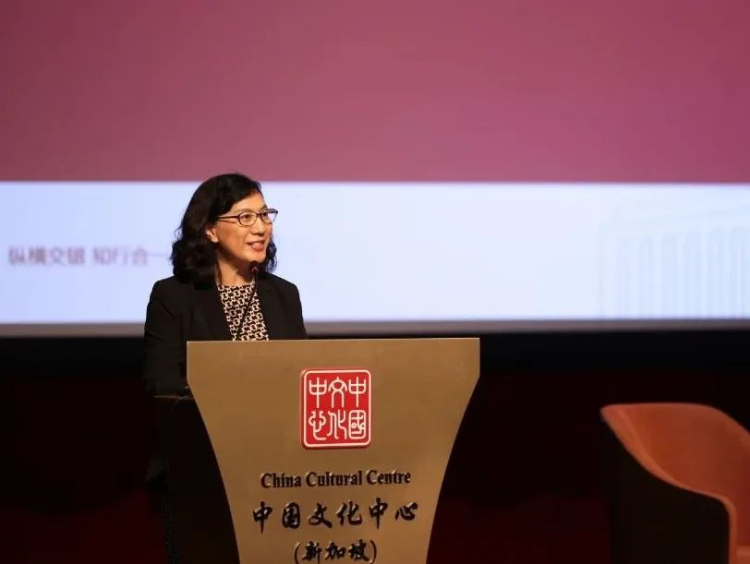
Prof. Xi Junfang introduces the background of the forum
Mr. Kang Kai said in his opening speech that design has unlimited possibilities for development and pursues the integration of both beauty and utility, with the greatest design at present being the “community with a shared future for mankind”. Meanwhile, design allows for great creativity and innovation. From individuals to countries, it not only helps to create a better and livable urban life but also promotes partnerships in various fields, as well as communication and exchange of cultures between countries.
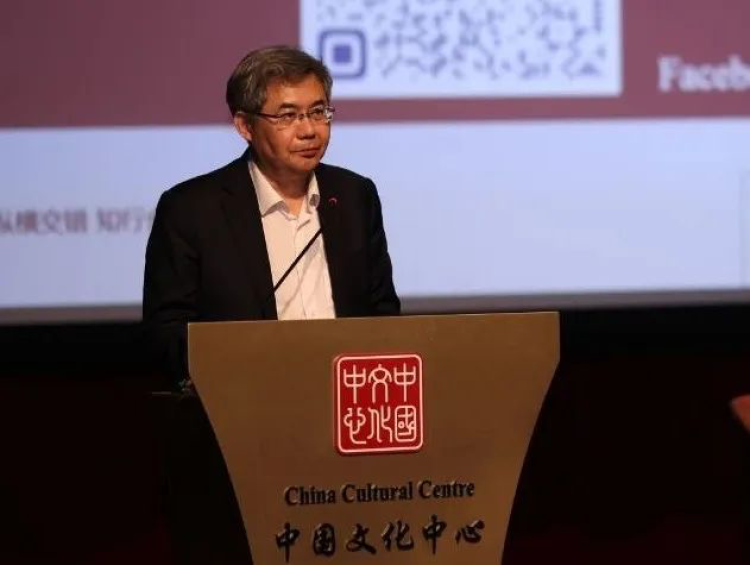
Counsellor Kang Kai delivers the opening speech
Prof. Ruan Xin said during his keynote speech that while focusing on practicality, an excellent design should also focus on echoing people’s perceptions, so as to raise the users’ spirits. Taking the renovation project of the teaching building of the School of Design, SJTU as an example, he specifically explained how to integrate Chinese and Western design philosophies so that the building can meet the needs of both teaching and bringing spiritual well-being to teachers and students.
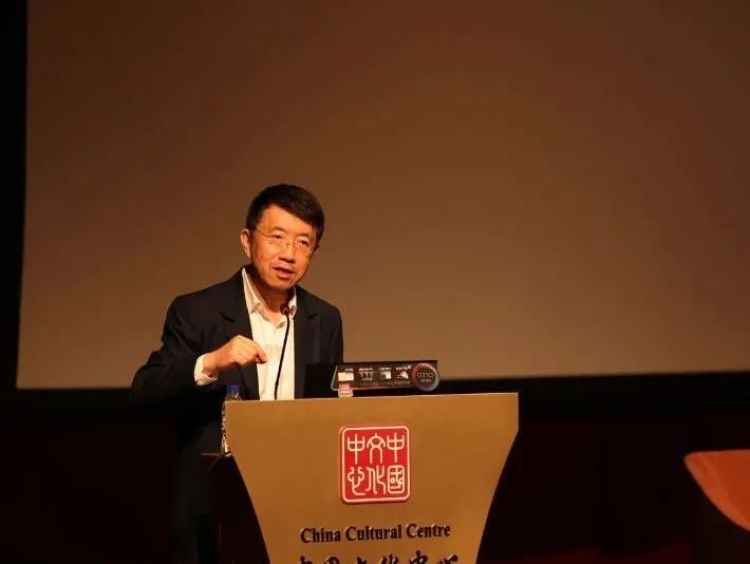
Prof. Ruan Xin delivers the keynote speech
Dr. Liu Thai Ker emphasized that architecture and planning are functional arts. “If you want to do better, you need human spirit.” Liu said that design itself has different functions, and designers need the “brains of scientists, the hearts of humanists and the eyes of artists when transforming ideas into practical designs. Urban planning is a systematic process which incorporates the comprehensive use of modern science and technology with local characteristics and styles so that the design and planning can achieve both the functional needs and aesthetics of the building that resonate with the users at the spiritual level.”
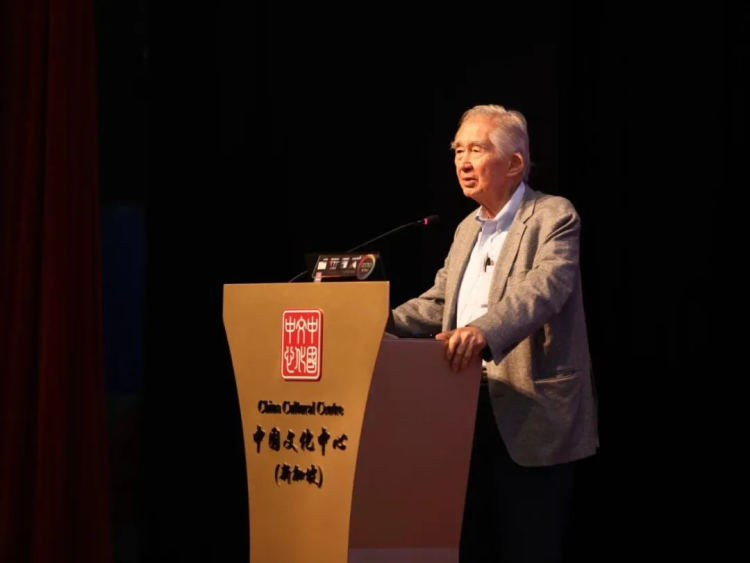
Mr. Liu Thai Ker makes comments during the speech
During the Round-table discussion, Mr. Tan Zhiyong pointed out that excellent and reasonable design can improve the productivity, reputation and competitiveness of enterprises, thus reflecting the spirit of enterprises. When talking about the experience of public residential design in Singapore, Dr. Liu Thai Ker shared his view that residential design should not only enable citizens to afford the rent and price, but also reach world-class level, so it is particularly important for designers to balance the style of buildings with local characteristics.
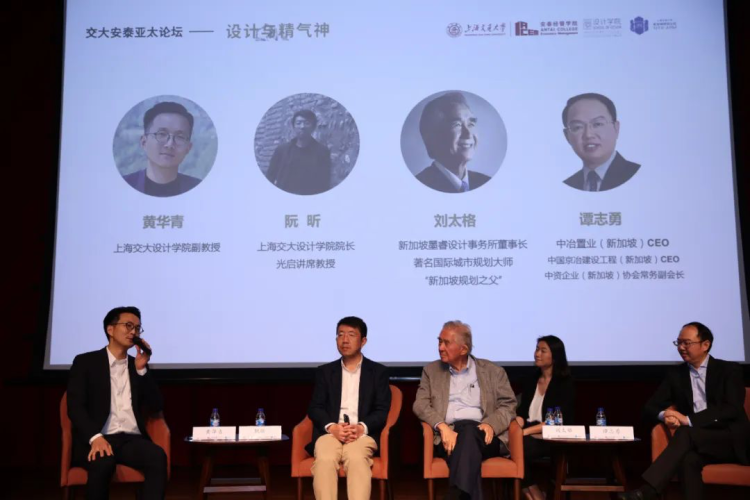
Speakers talks at the round-table discussion
Mr. Wu Jiong stressed during the concluding speech that SJTU is one of the fastest-growing universities in China. As a pioneer representative of Chinese universities in running overseas campuses, the rapid development of SJTU Asia-Pacific Graduate Institute is not only a continuation of the past successful work of ACEM in Singapore, but also a new journey of partnership between the University and Singapore. He hoped that with the support of numerous alumni and the management team of SJTU Asia-Pacific Graduate Institute, the partnership between Shanghai Jiao Tong University and Singapore could cultivate elite talents suitable for future development of Southeast Asia and even the world.
In line with this and "Go global", one of its philosophies, ACEM with its Asia-Pacific Center as the link, closely follows the development strategies of China and Singapore. It has and will continue to open up a cooperative path that keeps pace with the times, and contributes SJTU's wisdom in talent training, scientific research, and serving the society.
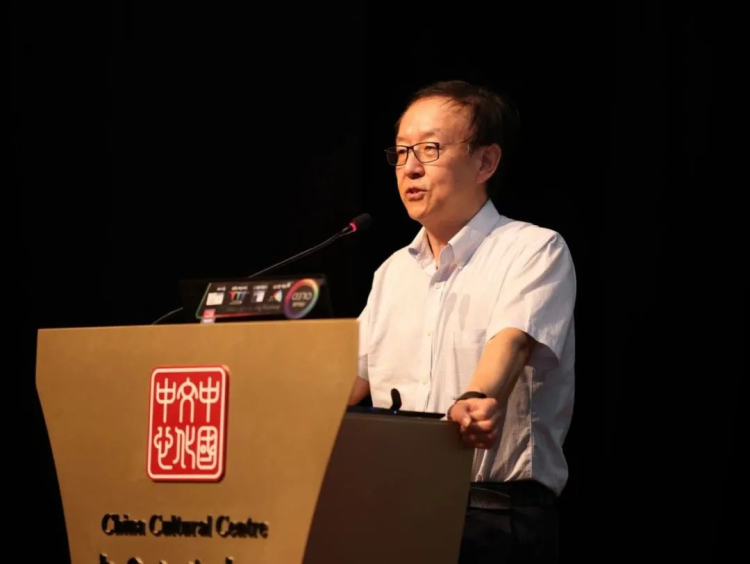
Mr. Wu Jiong delivers the concluding speech
On 22 & 23 July 2024, SJTU participated in CREATE Symposium 2024 and CREATE Governing Council Meeting in Singapore.
Issue 1 (June 2024) of the CNSB newsletter is out! Click to view or download
On May 21, 2024, the delegation from Donghua University (DHU), undertook a visit to SJTU-APGI.
Issue 30 (April 2024) of the E2S2 newsletter is out! Click to view or download